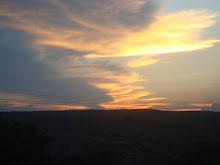This blog post is mainly a digest of reports I found in some previous issues of India's National Magazine 'Frontline'(January 18 - 31, 2003,June20-27, 2003,March 13 - 26, 2004):
Palakkad has long been considered the main "granary" of Kerala, growing a variety of crops, including rice, coconut, groundnut, cotton, sugarcane, pepper, banana, ragi, rubber, mango, orange, coffee, cardamom and vegetables. Its economy is sustained primarily by agriculture, which engages more than 65 per cent of the workers and by the Bharathapuzha, the second longest river in the State, and its tributaries. Many locations in Palakkad with their enchanting rural households, green fields and breathtaking natural beauty, were till recently the haunt of film-makers from far and near. Now, as the population of Palakkad, 90 per cent of which is rural, rues, the greenery and the beauty have disappeared.
Why the drought and how severe is it?
Indiscriminate extraction of groundwater by the Coca Cola unit had dried up many wells and polluted others and Plachimada is facing the worst drought in history.(Coca Cola and Pepsi have bottling units at Plachimada, Palakkad Dt, in Kerala and Cola at Sivaganga in TN.)The drought is now so severe that people have to skip work and take turns to walk 6 km every day to fetch water. Despite the State government's temporary closure order in the last week of February, the Cola company was functioning normally, guzzling groundwater. This shows how irresponsible and law-defying the cola companies are, minding only profits but not public good.
The people complain: "We had plenty of clean water(past tense). Today we have no work for most part of the year. We cannot use the water from our own well." Said Hameed, a farmer: "For the past three years I chose to leave the land fallow but for an occasional crop of groundnut and coconut. The borewell pump used to work continuously for over 16 hours in 2001. Now, I can pump water for the crops merely for an hour. The pond has dried up. I used to provide employment to 20 people. Now I live on my son's salary (I gave up agriculture)."
Rivers, fields, ponds and canals in Chittur taluk, "the granary of the granary" as this heartland of rice cultivation in the district is known, and in the neighbouring taluks are as dry as they are near the soft drink factories.
Yes, the cola plants have generated employment for a few workers. But at what cost? Loss of livelihood to hundreds of farmers and agricultural labourers and the very survival of people in the region is threatened.
Pattambi (near Shoranur), the most polluted area along the river according to a recent biodiversity study sponsored by the University Grants Commission, has a KWA pumping unit near an urban waste dump. The motors have to work at least eight hours every day if the entire town is to receive water. Now pumping stops after two or three hours. A KWA employee stationed there for over 15 years said that over a decade ago, during the monsoon, the pump house situated 20 metres above the river bed used to be submerged. "We used to hang the motors from the roof to protect them from the flood waters. Now, even at the height of the rains, the river would not touch the walls above the foundation of the building," he said. The drinking water scheme covering 3.5 lakh people got affected by the over extraction of water by the cola plant.
In this context, I once again appeal to all of you to be extremely careful while using water and not to waste a single drop of water. Use water but don't waste it as India with only 6% of the world's water resrc's has to cater to the needs of 16% of the world's population. Watch out for water that runs from the tap mostly while we are brushing, shaving or washing hands or something, water that trickles down for prolonged periods of time or water we flush unnecessarily.
The degree of water contamination:
Back to the report from Plachimada: Over extraction of water and release of effluents contaminated the groundwater so badly that the water damaged the vessels and clothes. Chemical waste discharged from the plant caused the death of cattle and scores of sheep. Kerala sastra sahitya parishad has indicated that the plachimada plant could lead to an environmental disaster as the indiscriminate extraction of groundwater by the Coca Cola unit had dried up many wells and polluted others.
The story does not end there. Today it is Plachimada. Tomorrow ...it can be Guntur, Vizag or any other place. Can we be blissfully ignorant about everything said above and dream that 'all is well with the world'. I am unable to do that. So I am publishing this blog in stead. Please spread the URL of this blog to all your friends and invite their comments.
Now, about Chiranjeevi:
Finally, I 'd like to reiterate that personally I don't have anything against Chiranjeevi. I appreciate his philanthropic works like running blood banks, eye banks, etc. I admire his success as megastar but I am unable to digest his callous indifference to the common cause of the public.
24 October, 2005
Subscribe to:
Post Comments (Atom)

No comments:
Post a Comment